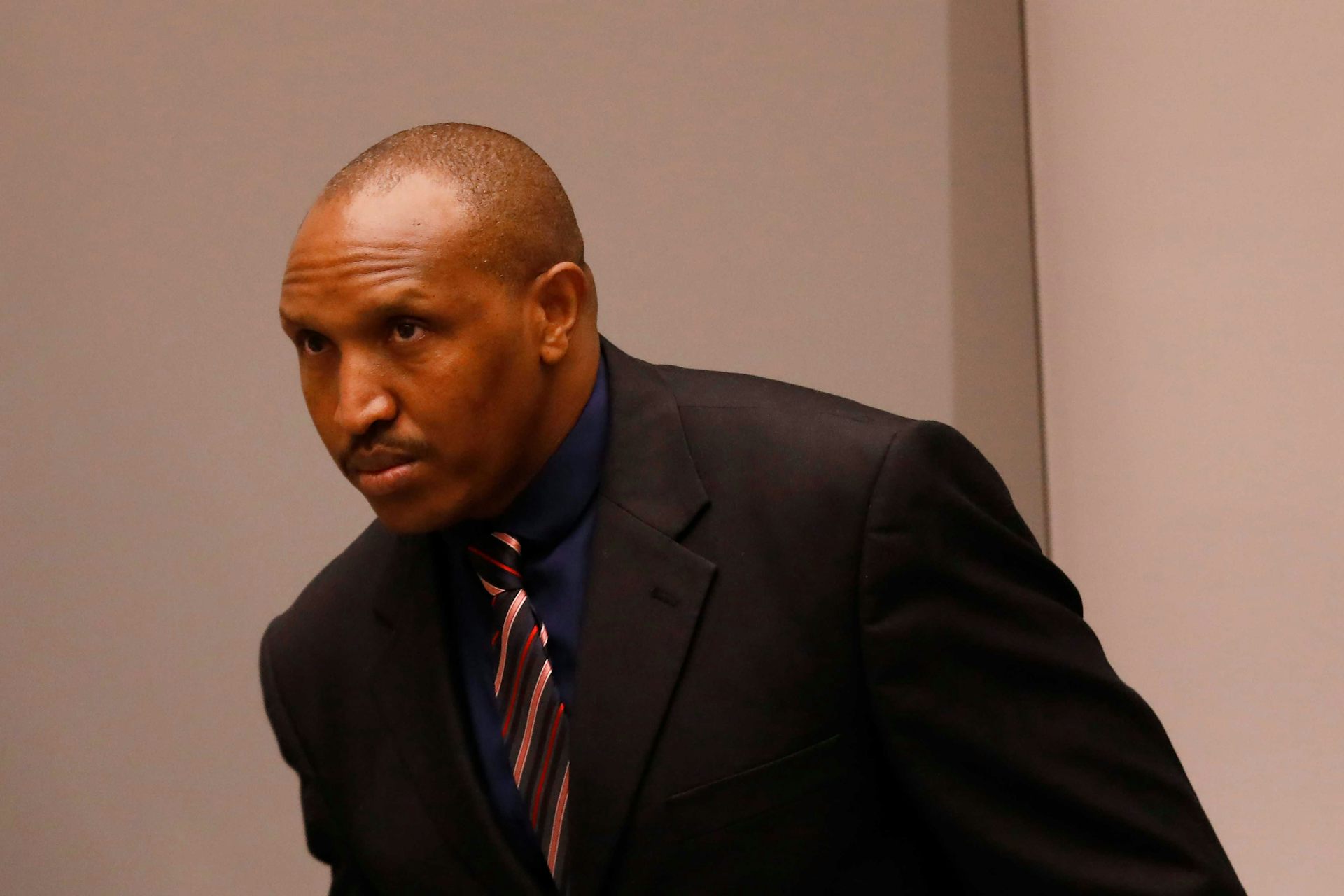
In early July the International Criminal Court (ICC) convicted Congolese warlord Bosco Ntaganda of war crimes, torture, and sexual slavery. Nicknamed “Terminator”, the 46-year-old is the first person to be convicted of sexual slavery by the ICC. He is only the fourth person convicted for international crimes by the ICC since its creation in 2002.
In what has become a predictable pattern, the Ntaganda judgment has been met by strong reactions.
On the one hand there is satisfaction about the conviction, particularly as it represents the first international conviction for the crime of sexual slavery.
But there is also frustration that the judgment addresses only a small part of the horrors of violence in the Democratic Republic of Congo (DRC). The ICC’s internal management of the case and the judges has also been criticised.
What’s absent from the various reactions is that there’s no drama, no intake of collective breath as greeted the ICC’s acquittals of Jean-Pierre Bemba and Laurent Gbagbo, or its decision not to proceed with investigations into atrocities in Afghanistan because facing off against a cantankerous US
The absence of bombshells reflects the plain vanilla successes of the Ntaganda decision. The case involved the ICC methodically, even dully, setting out the proof and rationale for its conviction in more than 500 pages. The judgment is evidence of the ICC acting as a court, and nothing more.
This quiet, plodding, judicial work is the correct way forward for the institution. It may also show the strategy outlined by the ICC’s second (and current) prosecutor, Fatou Bensouda, is bearing fruit.
Mixed record in DRC
Crimes committed in Ituri, the mineral rich region of the DRC that borders Rwanda and Uganda, were the subject of the first situation investigated by the ICC prosecutor when the court opened. The violence in the DRC, which continues even today, belies comprehension. It’s been called “the rape capital of the world” and
Bosco Ntaganda is the fifth defendant charged with crimes in Ituri, and its third conviction. Prior to Ntaganda, defendants Thomas Lubanga (2012) and Germain Katanga (2014) were convicted by the ICC. Both, however, received relatively light sentences for limited crimes.
Given the brutal, extensive violence committed by paramilitary groups in Ituri, the convictions against Lubanga and Katanga also arguably misrepresented, possibly even ignored, the most serious crimes committed in Ituri. Both defendants were additionally qualified by some observers as “small fish” and not the important government leaders that the ICC should be prosecuting.
Two other prosecutions for crimes committed in Congo failed altogether. In 2011, the pre-trial chamber declined to affirm charges against Callixte Mbarushimana, and in 2012, Mathieu Ngudjolo Chu was acquitted.
Ntaganda’s case was originally attached to Lubanga’s, and severed only because Ntaganda spent seven years at large. An arrest warrant was issued against him in 2006. It was only in 2013, after a shake-up in his M23 rebel group ousted him from power, that he then turned himself in at the US embassy in Kigali.
Ntaganda was charged with 18 counts of war crimes and crimes against humanity for atrocities committed in the DRC from 2002 to 2003, and found guilty on all 18 counts.
In finding Ntaganda guilty of sexual slavery, the trial chamber set new precedent, by determining that sexual violence directed at one’s own army is also a crime recognised under international criminal law.
What comes next?
The trial chamber still has not issued Ntaganda’s sentence. The prosecution, defence and victims representatives will have the next few weeks to file their sentencing requests. The defence has 30 days to file an appeal, and has already announced that it intends to do so.
It is expected that the defence will continue to object to the presence of Judge Ozaki. In February 2019, Ozaki became a “part time” judge as well as the Japanese ambassador to Estonia, which post she held until April. Ntaganda’s lawyers argued that serving in a government capacity while simultaneously sitting as a judge constitutes a conflict of interest, and filed a request to disqualify Ozaki. In June, a majority of all ICC judges, sitting in plenary, dismissed the request, leaving Ozaki to continue to serve as a part of the three judge panel that convicted Ntaganda.
The Ntaganda judgment is long and assessments of its import in specialised international law blogs have only begun to emerge.
What’s clear is that the criticisms directed at the ICC about the judgment have little to do with the judgment itself. In its steady consideration of witness testimony and reasoned application of international criminal law to established as well as new terrain, Ntaganda is a return to the basics of jurisprudence.
It might not get all the headlines or suck all the air out of the room, as methodical, careful, reasoned court decisions rarely do. But this in itself represents real progress, and an actual significant victory, for the court.![]()
Kerstin Carlson, Associate Professor International Law, University of Southern Denmark
This article is republished from The Conversation under a Creative Commons license.


